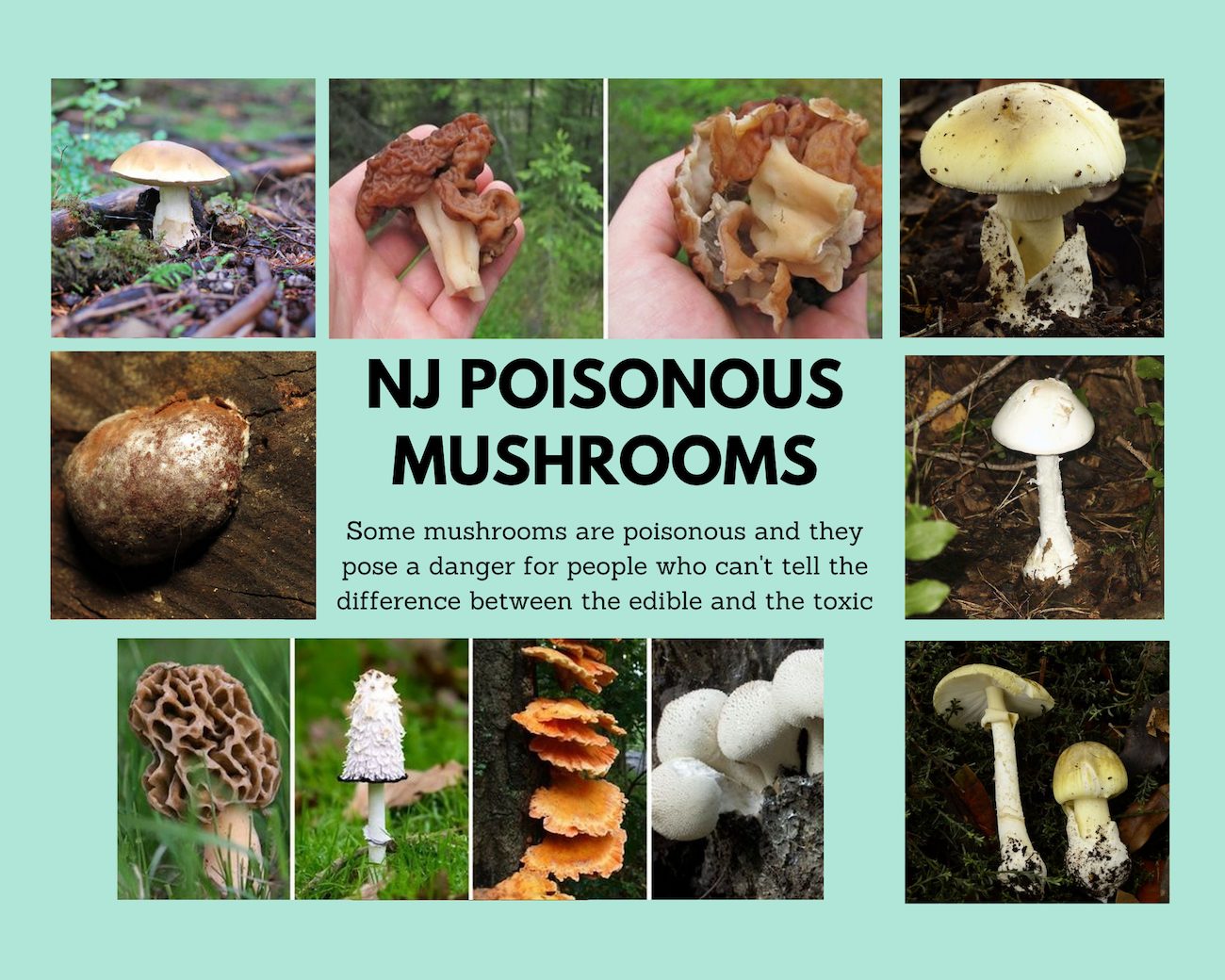Hot, humid, and wet — the perfect weather conditions for a potentially dangerous wild mushroom season in New Jersey. Each year the medical professionals at the NJ Poison Control Center are called upon to assist with cases of mushroom exposure and poisoning. Poisoning results from eating toxic species of wild mushrooms. Sadly, some cases result in hospitalizations and even deaths. Symptoms of mushroom poisoning include intense vomiting and diarrhea, dehydration, and damage to vital organs like the liver.
Mushroom poisoning is a preventable injury — do not eat wild mushrooms unless they’ve been identified as safe to eat by a mushroom expert. Picking and eating wild mushrooms growing in gardens/fields, on lawns, or in the woods is a dangerous game. Even experienced and expert mushroom pickers are fooled at times by toxic look-alikes.
“Don’t be fooled, eating the wrong species of mushroom can result in devastating health effects,” says Diane Calello, executive and medical director of the New Jersey Poison Control Center at Rutgers New Jersey Medical School, Department of Emergency Medicine. “Mistaken identity is a significant risk of picking wild mushrooms. Many edible mushrooms growing in the wild have toxic look-alikes. It can be extremely difficult to tell an edible species of mushroom from a toxic one as they can look identical.”
Some recipes online and in specialty cookbooks encourage adding an adventurous twist to meals by foraging for wild mushrooms. This suggestion poses an incredibly dangerous risk to the general public as they do not have the many years of education and experience needed to identify toxic look-alikes.
“The cooking process does not prevent the toxic health effects of some mushrooms,” says Calello. “Depending on the type of mushroom, eating even a few bites can cause serious health concerns. Our recommendation is it’s unsafe for the general public to pick and eat mushrooms found in the wild, no matter the scenario.”
Children and pets are especially at risk for mushroom poisoning, and should always be supervised when they’re outdoors. They too can suffer serious injury and even death from eating a toxic wild mushroom. Teach children to ask an adult first before putting anything in their mouths.
In the event of a potential mushroom poisoning:
- Do not wait until symptoms appear or spend time looking for information online. It’s important to get medical help immediately.
- Call your local poison control center at 1-800-222-1222 to get expert medical treatment advice. Poison center help is free, confidential, and available 24/7. Your poison control center may arrange for an expert to identify the mushroom(s).
- Remove all pieces of the mushroom from the person’s mouth. Put the pieces into a paper bag (NOT plastic). Also, collect and bag all mushrooms growing near the one that was eaten. You may put all the mushrooms together in one paper bag or use two separate bags.
- Take a digital photograph of the mushroom(s) in question. It helps to take a picture of the mushroom next to other objects such as a coin, ruler, etc. to provide a sense of size.
Poison control centers are not only a great resource in the event of an emergency, but also for questions and concerns. New Jersey residents can contact the center’s medical professionals in the following ways: Call the Poison Help Hotline at 1-800-222-1222; Text 973-339-0702; Chat via the Poison Center’s website. Stay connected on social media: Facebook Twitter.
If someone is unconscious, not breathing, hard to wake up, or having a seizure, immediately call 9-1-1.
Submitted by Hopewell Township.




